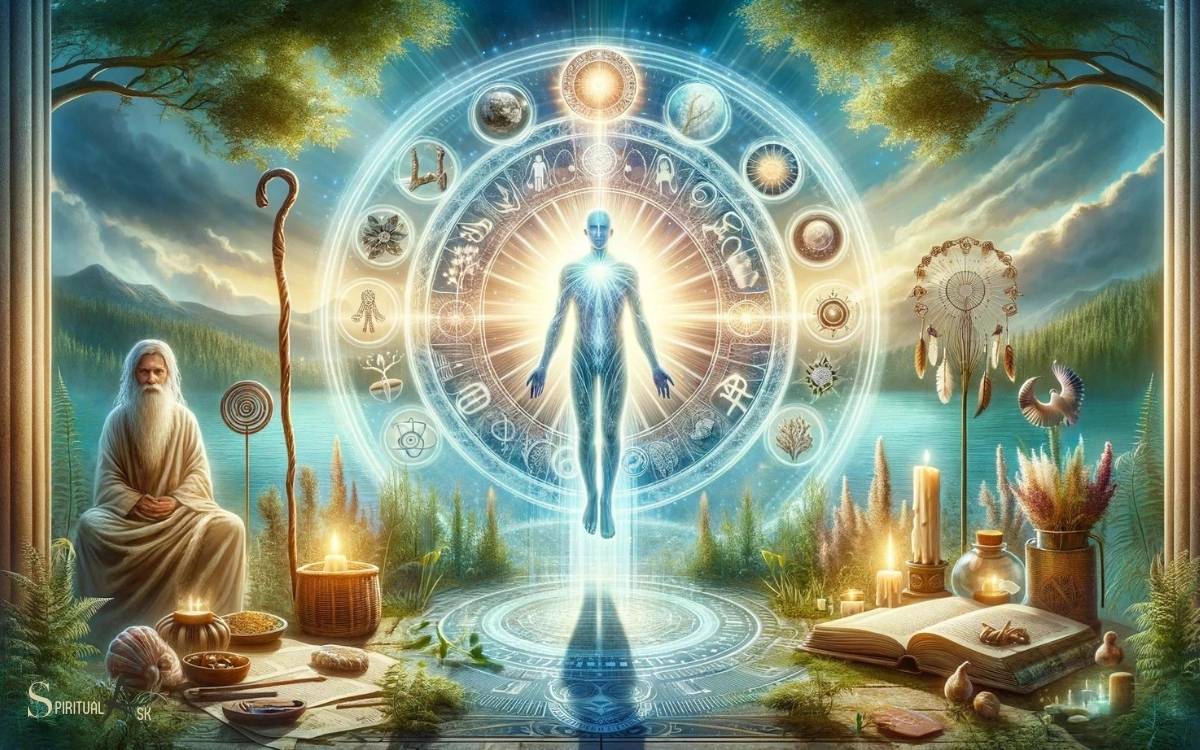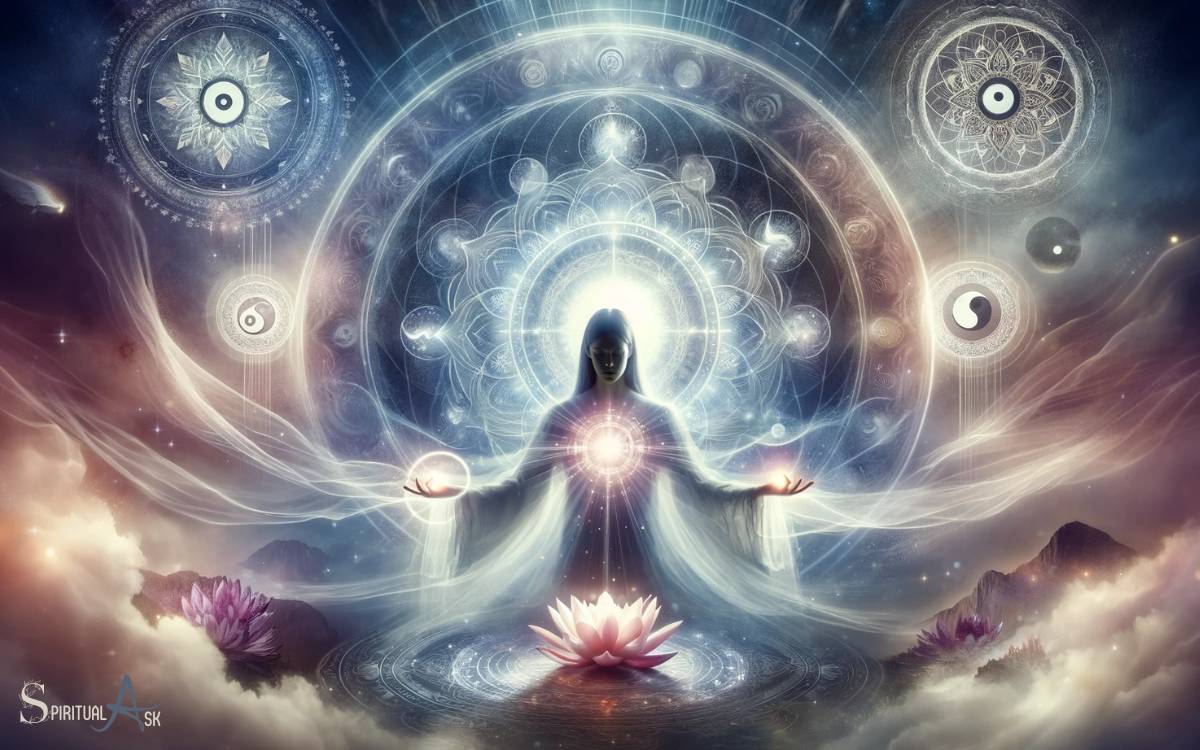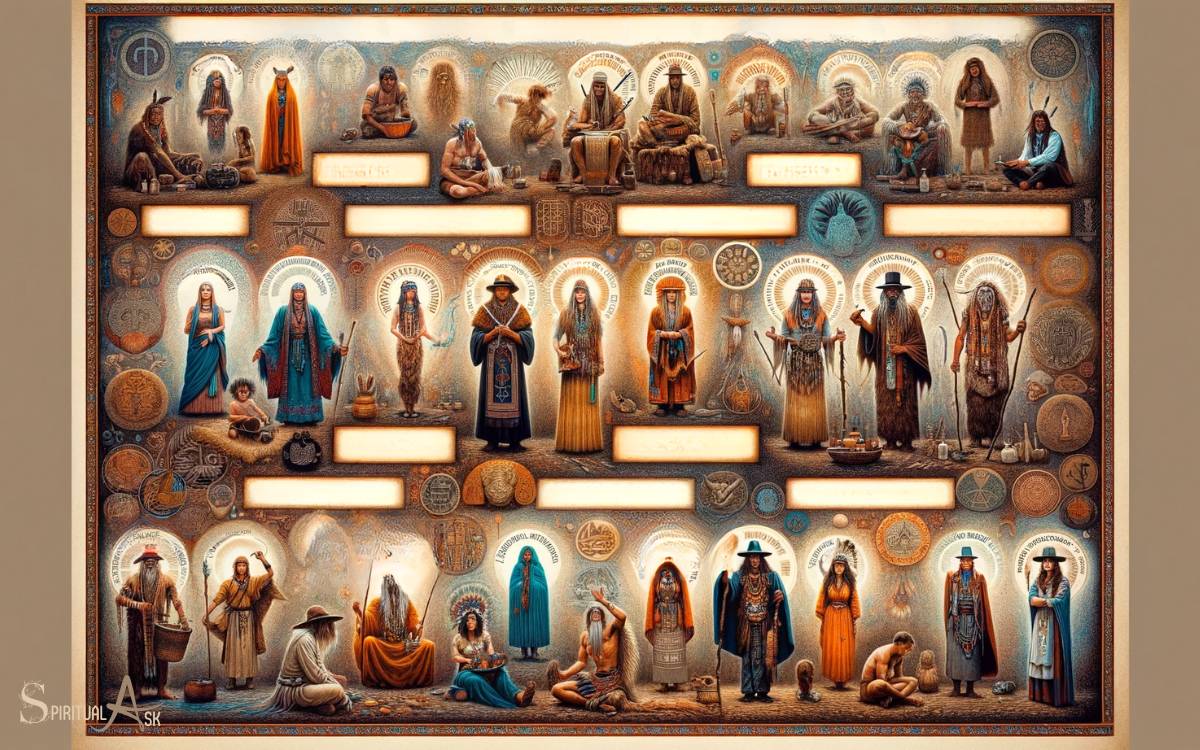What Is a Spiritual Healer Called? Reiki Practitioner!
A spiritual healer is often referred to as a shaman, a reiki practitioner, a spiritualist, a faith healer, or an energy healer, depending on the cultural and methodological context.
Spiritual healing is a broad term that encompasses various practices aimed at healing individuals through spiritual or energy-related means rather than through conventional medicine.
Depending on the culture and the specific practices involved, spiritual healers may have different titles:
Spiritual healers typically use non-invasive techniques and are sought by individuals seeking holistic or complementary alternatives to traditional healthcare.
Embracing the ancient wisdom and modern interpretations of spirituality, these healers offer a sanctuary for those seeking solace and restoration beyond the physical realm.

Key Takeaway
The Concept of Spiritual Healing
I’ve always believed in the power of spiritual healing to help individuals overcome physical and emotional challenges.

For me, spiritual healing is about tapping into the energy that connects us all and using it to bring about a sense of peace, balance, and well-being. It’s not about replacing medical treatment, but rather complementing it with a holistic approach that addresses the mind, body, and spirit.
Spiritual healers, often referred to as energy healers, work with the subtle energies within the body to remove blockages and restore a sense of flow and harmony. This can involve practices such as Reiki, meditation, or prayer.
The concept of spiritual healing is rooted in the understanding that we are more than just physical beings and that our spiritual well-being is intimately connected to our overall health.
Traditional Names for Spiritual Healers
When it comes to traditional names for spiritual healers, there are various titles that have been used across different cultures and belief systems.

From shamans in indigenous communities to medicine men in Native American traditions, each name carries its own unique cultural and historical significance.
Additionally, terms like curandero, psychic medium, energy worker, and faith healer also represent different forms of spiritual healing practices found worldwide.
Shaman, Medicine Man
A shaman is a spiritual healer who practices ancient traditions and rituals to address physical, mental, and emotional ailments.
They are often considered the “medicine men” or “medicine women” of their communities and are highly respected for their ability to connect with the spiritual world to heal the sick and provide guidance.
Shamans use various methods such as herbal remedies, chanting, drumming, and dance to enter a trance-like state and communicate with the spirit world.
In many cultures, the role of the shaman is passed down through generations and they play a crucial part in maintaining the overall well-being of the community.
Curandero, Psychic Medium
Continuing from the previous subtopic on shamanism, I’ll delve into the roles of curanderos and psychic mediums as traditional names for spiritual healers. In many cultures, curanderos are revered for their knowledge of herbal remedies, energy work, and spiritual cleansing.
They are often sought out for physical, emotional, and spiritual healing. Curanderos are known for their ability to connect with the natural world and the spirit realm to bring about balance and well-being.
On the other hand, psychic mediums act as intermediaries between the living and the spirit world. They may communicate with spirits to provide guidance, closure, or healing to those seeking their help.
Both curanderos and psychic mediums carry on ancient traditions of healing and are respected members of their communities for their spiritual wisdom and abilities.
Energy Worker, Faith Healer
As an energy worker, my role involves facilitating the flow of energy within the body to promote healing and wellness.
- I work with the body’s energy systems, such as the chakras, to remove blockages and restore balance.
- By using techniques like Reiki or Qigong, I help to replenish and realign the body’s energy.
- I also focus on the mind-body connection, recognizing the impact of emotional and mental states on overall well-being.
- My approach is holistic, considering the individual as a whole being rather than just addressing specific symptoms.
Spiritual Healer Titles Across Cultures

Exploring spiritual healer titles across cultures reveals the diversity and depth of healing practices worldwide.
- In traditional Chinese culture, a spiritual healer is often referred to as a “Daoist Priest” or “Qigong Master,” emphasizing the connection between spirituality and energy healing.
- In India, a spiritual healer may be called a “Guru” or “Yogi,” reflecting the deep spiritual wisdom and knowledge associated with their healing practices.
- In Native American cultures, healers are known as “Medicine Men” or “Shamans,” highlighting their role as intermediaries between the physical and spiritual worlds.
- In African traditions, spiritual healers may be called “Sangomas” or “Diviners,” embodying their ability to communicate with ancestors and spirits to bring about healing.
These titles reflect the rich cultural tapestry of spiritual healing practices across the globe.
Modern Terminology for Spiritual Healers

In my research, I have found that modern terminology for spiritual healers often includes the term ‘energy healer’ to emphasize the focus on manipulating and balancing the body’s energy fields.
This term is becoming increasingly popular as it resonates with the understanding of energy flow in the body.
As I delved deeper into this topic, I discovered that modern spiritual healers are also referred to as: Instead of just being called spiritual healers, they are also known as energy healers, intuitive healers, or holistic healers. Many of them have formal training in various healing modalities and may offer services such as Reiki, chakra balancing, or crystal healing. They often run their own spiritual healing business and may have a specific spiritual healing business plan in place to help guide their practice and attract clients.
- Holistic healers, highlighting their approach to healing the whole person, including mind, body, and spirit. This term underscores the comprehensive nature of their healing practices.
- Vibrational healers, reflecting the belief that everything in the universe is in a state of vibration and that healing occurs through adjusting these vibrations. This term emphasizes the energetic aspect of their healing work.
- Intuitive healers, recognizing their ability to tap into their intuition to guide the healing process. This term highlights their intuitive and empathic abilities in healing practices.
As we explore the modern terminology for spiritual healers, it becomes evident that these terms reflect the evolving understanding of healing practices and the interconnectedness of mind, body, and spirit.
The Role of Energy Workers
I’ve discovered that energy workers play a crucial role in spiritual healing by channeling and manipulating the body’s energy fields to promote balance and well-being.

These practitioners often work with the belief that imbalances or blockages in the body’s energy can lead to physical, emotional, or spiritual ailments.
By using various techniques such as Reiki, Qigong, or chakra balancing, energy workers aim to remove these blockages and restore the natural flow of energy within the body.
Their role is to support individuals in their healing journey by addressing the subtle energies that are believed to contribute to overall well-being.
Energy workers may also provide guidance on maintaining energetic balance and offer insights into the connection between energy and a person’s spiritual and physical health.
Emerging Names for Spiritual Practitioners
So, let’s talk about the evolving titles and names for spiritual practitioners. It’s fascinating to see the new descriptors emerging in the field of spiritual healing.

From energy workers to lightworkers, the names are evolving to better capture the essence of the work being done.
New Titles for Healers
As a spiritual healer, I find that the emerging title ‘energy practitioner’ resonates with the evolving nature of our work. This term reflects the focus on manipulating and balancing energy to promote healing and well-being.
Other new titles for healers that are gaining popularity include:
- Vibrational Therapist: This emphasizes the use of vibrational frequencies to bring about healing and harmony.
- Consciousness Facilitator: Highlighting the role of expanding awareness and guiding individuals towards higher states of consciousness.
- Holistic Energy Worker: Reflecting the comprehensive approach to healing that addresses the physical, mental, emotional, and spiritual aspects of an individual.
These emerging names capture the essence of the modern spiritual practitioner’s role in facilitating holistic well-being. As our understanding and methods evolve, so do the titles that represent our work.
Evolving Spiritual Practitioner Names
One emerging name for a spiritual practitioner is a ‘consciousness guide,’ reflecting the focus on expanding awareness and guiding individuals towards higher states of consciousness.
This term emphasizes the role of the practitioner in helping others to awaken to new levels of understanding and perception. Another evolving name is ‘energy worker,’ highlighting the manipulation and balancing of energy fields to promote healing.
This title emphasizes the practitioner’s ability to work with subtle energies for the betterment of others.
Additionally, ‘intuitive healer’ is gaining popularity, emphasizing the use of intuitive abilities in the healing process. This name underscores the importance of intuition and insight in guiding the practitioner’s work.
These evolving titles reflect the nuanced and multifaceted nature of spiritual healing practices in our modern understanding.
Conclusion
The term “spiritual healer” has different names across cultures and traditions, such as shaman, medicine man, or curandero.
However, in modern times, the term “energy worker” has gained popularity as a more inclusive and universal term for those who practice spiritual healing.
Did you know that 62% of Americans have used some form of spiritual healing or alternative therapy? It’s a growing field with a lot of interest and potential.






